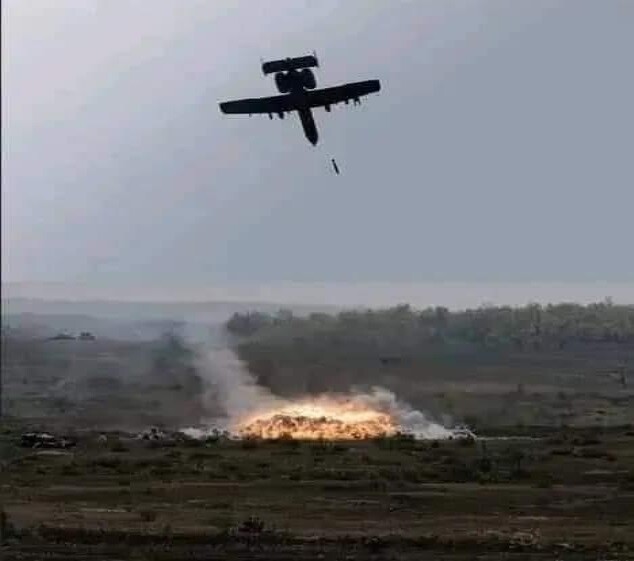Ethiopia’s latest conflict has intensified in recent months with a surge in drone attacks seemingly targeting civilians.
Weeks after a deadly drone attack on November 30 killed five civilians in the town of Wegel Tena in Ethiopia’s Amhara region about 570km (350 miles) north of the capital, Addis Ababa, a witness is still reeling from the trauma.
“It’s extremely difficult to even describe the scene of the aftermath,” said Gebeyehu, who requested use of his first name only for safety reasons. “Bodies were burned so badly they had turned to dust. I saw the finger bones of one of the victims still shaped as though it was still clutching a mobile phone.”
 Several witnesses told Al Jazeera that a drone fired on an ambulance as it approached the Delanta Primary Hospital in Wegel Tena and obliterated it. Hospital staff, including a doctor and the ambulance driver, as well as employees from a nearby construction site died instantly.
Several witnesses told Al Jazeera that a drone fired on an ambulance as it approached the Delanta Primary Hospital in Wegel Tena and obliterated it. Hospital staff, including a doctor and the ambulance driver, as well as employees from a nearby construction site died instantly.
“In Wegel Tena, there are still surveillance drones hovering over the sky. Everyone is afraid, so we avoid walking in large groups,” Gebeyehu added.
The strike was the latest in a rise in deadly drone activity in the Amhara region, where the Ethiopian army, the only operator of armed drones in the Horn of Africa country, has been engaged in an all-out war against ethnic Amhara rebels.
The rebel militiamen, known as Fano, were formerly allied with the Ethiopian government, but the two sides fell out after the former refused orders to disband in April. Instead, in August, they overran a slew of major towns in the region.
In response, the Ethiopian government declared a state of emergency and deployed the army to “restore order” and crush the rebels. Despite lacking a formal command structure and largely relying on volunteers, the Fano fighters are still actively fighting across the Amhara region, where they are widely popular.
In August, the Ethiopian Human Rights Commission detailed widespread killings of civilians in the conflict, including in air strikes and shelling. Within days, hospital officials in the town of Finote Selam said at least 26 people had died in a suspected air strike by federal forces.
 Regionwide communications outages have made it difficult to verify the mounting reports. But the United Nations managed to document two other incidents, including the killings of seven people at a primary school in the region’s Wadera district on November 6 and the killing of more than a dozen people at a bus terminal three days later in the town of Wabirr.
Regionwide communications outages have made it difficult to verify the mounting reports. But the United Nations managed to document two other incidents, including the killings of seven people at a primary school in the region’s Wadera district on November 6 and the killing of more than a dozen people at a bus terminal three days later in the town of Wabirr.
The incidents highlight what UN Human Rights Office spokesperson Seif Magango referred to as the “devastating impact of drone strikes and other violence on the population in the Amhara region”.
The BBC has also reported that 30 to 40 people were killed in a December 10 strike in the district of Amhara Sayint. On Christmas Day, a drone strike killed 8 people in Oromia.
“The drone strikes have increased dramatically in the past few weeks, and almost all the strikes have targeted civilians,” said Tewodrose Tirfe, chairman of the United States-based advocacy group Amhara Association of America. “The uptick in drone strikes is an indication the ground offensive by federal forces has failed and they are losing on the battlefield to the Fano.”
‘Collective punishment’
In 2022, drones were linked to civilian deaths of hundreds of people across the then-rebel stronghold of Tigray, a region that borders Amhara in the north, and Ethiopia’s largest region, Oromia. More than 50 people died in a single attack that struck a camp for displaced people in Tigray in January.
Tewodrose said his organisation has accumulated data on about 70 drone strikes that caused civilian casualties in the Amhara region since May. In an extensive interview with an Ethiopian state broadcaster, the head of the army, Field Marshall Birhanu Jula, denied that army drones were targeting civilians.
 “Of course, when we find gatherings of the extremist fighters, our drones will hit them, but we take great care to avoid civilian casualties. In fact, we’ve previously located targets and decided against firing when we note that they are embedded with civilians,” he said.
“Of course, when we find gatherings of the extremist fighters, our drones will hit them, but we take great care to avoid civilian casualties. In fact, we’ve previously located targets and decided against firing when we note that they are embedded with civilians,” he said.
Footage Al Jazeera obtained showing the aftermath of the Wegel Tena drone strike appears to contradict his statement. It shows an ambulance ablaze with its roof caved in, consistent with a direct aerial hit. The footage appears to match photographs of the aftermath circulated days later. Shortly after the photographs surfaced, the town’s internet access was cut off.
 “The violence and drone strikes are part of a trend of collective punishment,” said Yirga Gelaw Woldeyes, a lecturer at Curtin University’s Centre for Human Rights Education in Australia. “The government refuses to distinguish between Amhara fighters and civilians as it prefers to demonise Amhara society as a whole. It’s a political ploy to weaponise nationalism against a group it characterises as an enemy.”
“The violence and drone strikes are part of a trend of collective punishment,” said Yirga Gelaw Woldeyes, a lecturer at Curtin University’s Centre for Human Rights Education in Australia. “The government refuses to distinguish between Amhara fighters and civilians as it prefers to demonise Amhara society as a whole. It’s a political ploy to weaponise nationalism against a group it characterises as an enemy.”
Yirga said the conflict with Fano could have been averted had the government taken steps to address grievances of the Amhara people with sincerity instead of force.
 Meanwhile, civil society organisations in Ethiopia are calling on the warring parties to end hostilities and engage in dialogue.
Meanwhile, civil society organisations in Ethiopia are calling on the warring parties to end hostilities and engage in dialogue.
‘Cruel and pointless’
On the government’s side, the conflict is portrayed as nearing its end, rendering dialogue unnecessary.
“We’ve destroyed their main fighting force,” Birhanu said. “All that’s left are remnants, including bandits and escapees from prison. Some had been detained for murder.”
Meanwhile, Mere Wedajo, a Fano military commander, told Al Jazeera that the biggest roadblock to peace talks was Prime Minister Abiy Ahmed.
“We aren’t opposed to peace talks in theory as the Amhara are a peace-loving people, but with Abiy, we are talking about someone who can’t honour his own word. He is treasonous. How could the Amhara people trust him?”
As fighting looks to continue into 2024, the Ethiopian government could continue to resort to its drone arsenal, battle-tested in the country’s wars that have killed hundreds of thousands of people and displaced millions since 2019.
The wars have exacerbated a humanitarian disaster and drained the economy. Reports of a surge in starvation deaths have coincided with the news that the country defaulted on a $33m payment as part of its debt, on Boxing Day.
But Addis Ababa may still be gearing up to expand its drone investments.
Last week, a joint Ethiopian-Emirati airshow was held to mark the 88th anniversary of the founding of the Ethiopian air force. The event, which was broadcast on state media and held in the city of Bishoftu, where the air force is based, featured foreign dignitaries, including Emirati military officials.
Al Jazeera has previously documented the United Arab Emirates’s extensive deliveries of armaments, including drones, to Ethiopia. Open-source researchers have recently discovered another uptick in Emirati cargo flights to the air force base in Bishoftu.
Among the dignitaries present was Haluk Bayraktar, CEO of the Turkish defence firm Baykar, which manufactures the Bayraktar TB2 drone used in Ethiopia’s wars.
Baykar, whose drones have been implicated in civilian killings in Ethiopia and beyond, was awarded a medal from Birhanu for “significant contributions to capacity building of the Ethiopian air force”. The honour and the civilian deaths have angered observers of the country’s internal crises.
“It is beyond comprehension that a prime minister who was recognized with a Nobel Peace Prize would deploy armed drones to fire live bullets at his own citizens,” said Addisu Lashitew, a nonresident fellow at the Brookings Institution, a Washington-based think tank.
“It is both pointless and cruel. Pointless because you can’t subdue a people with an idea with bullets. Cruel because most of the victims are innocent civilians.”

















